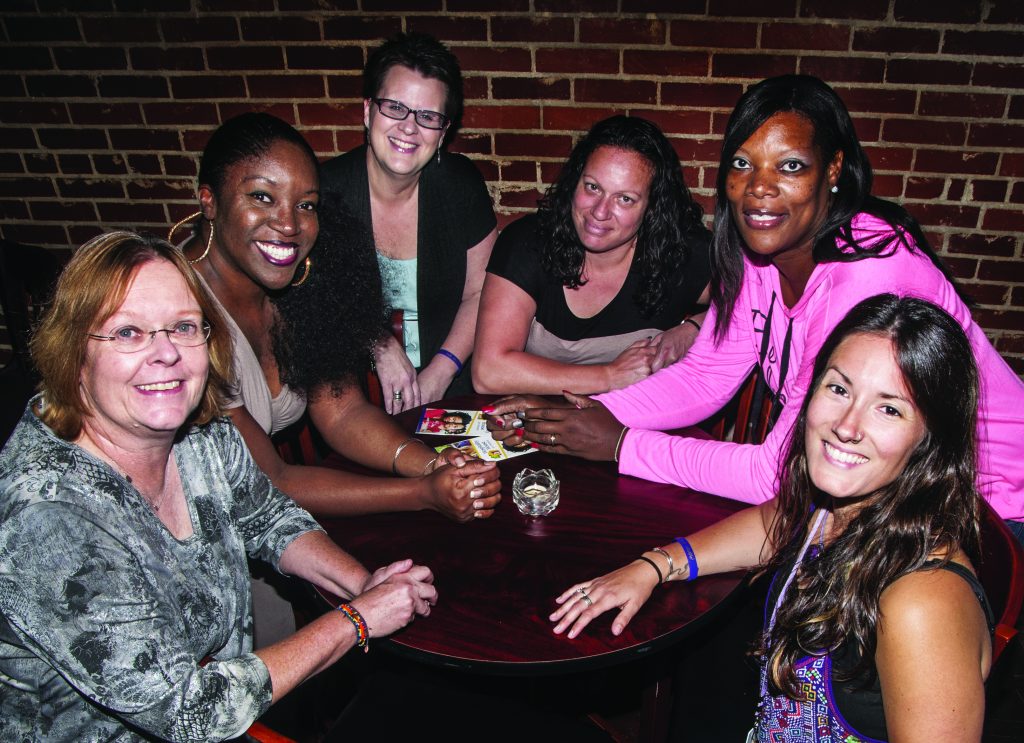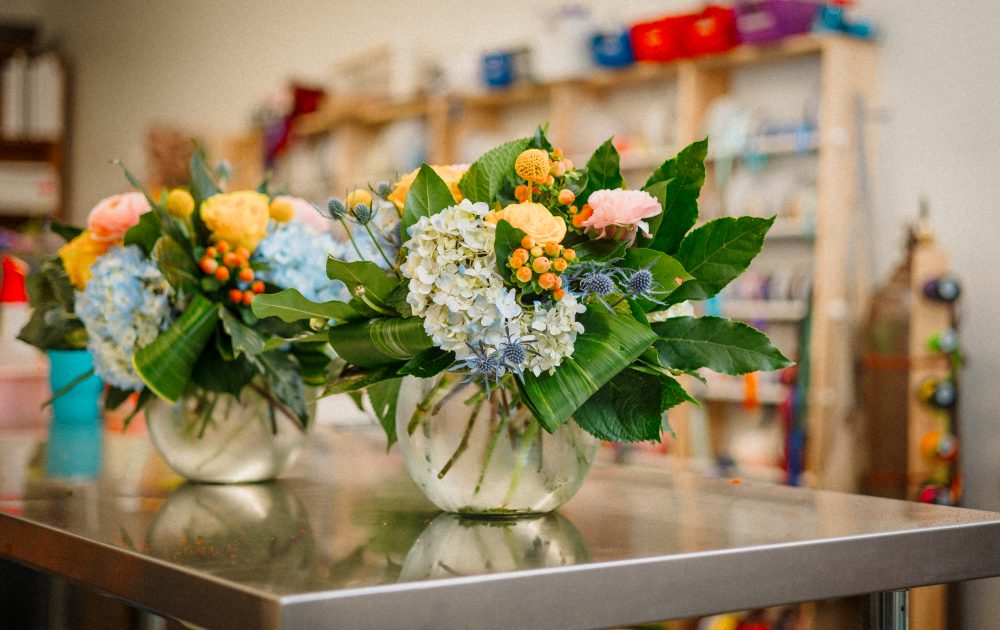
Photo by Derek Bell
Lurking in the casted shadows of corners long overlooked, it thrives in cold, dank silence. To speak of it pushes a lump against the esophagus, and to see it firsthand alters reality and emotion. Rarely does it look exactly like what it is, and so frequently it prevails; rearing its ugly head, striking its vulnerable target.
If you haven’t turned the page on the calendar yet this month, please do so, and when you do, take a moment to take notice that October is Domestic Violence Awareness Month (DVAM) … and that domestic violence is exactly the evil I speak of.
DV (or Intimate Partner Violence) is far more prevalent than one may realize; numbers could be strewn across this very page for columns worth of statistics on the frequency with which this injustice occurs. Think of this: Three out of four Americans know someone who is currently experiencing or has experienced some form of DV. Three out of four of us. This magnitude of malice cannot be comprehended by the reasonable mind, but it doesn’t mean it isn’t happening. And it doesn’t mean that it’s not unjust.
The Department of Health and Human Services has found that nearly 20 people per minute are abused by an intimate partner in the United States. 20 victims per minute.
It’s not easy to address, but domestic violence has, unfortunately, shown that it’s not going anywhere anytime soon.
In a world where the ideal doesn’t always prevail and abuse can take on many disguises, agencies like the Hospitality House for Women Inc. must work incessantly to help organize the scattered broken pieces of a victim into the patched, healing whole of a survivor. Since 1978, the HH has worked diligently in the interests of domestic violence victims, standing as Floyd County’s only emergency and outreach resource for DV victims and their children. Growing from a five-bed shelter at its start, the HH can now house up to 27 women and children for up to 90 days.
Providing a one-on-one relationship with each resident, Family Advocate Belinda Riddle and Women’s Advocate/Shelter Manager Lisa Hatcher are often the first people a victim may speak to upon calling the crisis line or arriving at the shelter. Case planning, goal determination, budget planning and safety planning are all part of the initial intake assessment that Riddle and Hatcher carry out with their residents. With close to two decades of HH service between them, Riddle and Hatcher are diligent in their advocacy, responsible for determining and communicating the necessary resources – whether that be housing, job listings, and social service – or just to talk to someone who will listen.
“It’s a new day every day in here,” says Hatcher. “Even though I’ve been here as long as I have, I still learn something new every day … everybody is different and every situation is different.”
Emergency food, clothing and shelter only scratch the surface of the services offered. In addition to being a strong, stable bolster for their residents, these women are meanwhile advocating in the areas of finances, legalities and social services. It’s important to note, that while the shelter itself is, in fact, reserved for women and children, the HH also advocates and provides safety for male victims.
“I’m not a lawyer,” says Legal Advocate Holly Arendt. “I’m not allowed to give legal advice but I can give general advice and lead them down the path they need to go, which includes immigration, divorce, child custody, and more importantly protective orders.” Arendt is passionate about safety, and to her, a protective order is much more than a piece of paper; it’s a statement of empowerment.
Each of the HH advocates echo the importance of being a patient, attentive listener. “Whether it’s what they went through or just to talk about how work went that day,” Hatcher explains, “I think that just having that one-on-one with somebody is important, even if you’re just trying to make them laugh.”
Domestic violence advocates are strategists, emotional multi-taskers, mediators, role models and educators. They have to be at their strongest because their residents are sometimes at their weakest. Dire situations and feelings of hopelessness accompany their residents and outreach clients, and it takes a strong soul to hold that weight, if even for a moment; but there is no judgement here.
“Everyone is treated with respect from the front door on no matter what the Roman Record says or what’s happened in their past,” says Executive Director Malinda Kogerma.
Kogerma adds that one of her tallest hurdles has been to communicate to those who aren’t familiar the complexities associated with domestic violence – how to handle mental health, substance abuse and behavioral health. She says that getting to the root of the problem is much more important than blaming the external issue, and when it comes to a situation of domestic violence, the last thing she and her team will do is place blame.
“I just always try to remember that this could be me,” Riddle says. “This could be me with no support system; this could be me with children and living in a shelter. And so if you always remember that, you’ll treat people with kindness no matter what their situation is.”
No judgement, no blame.
In fact, “victim blaming” is a widespread issue faced by DV survivors. Questions like, “Did you provoke the abuse?” or “Why don’t you just leave?” fail to hold the perpetrator accountable and, in turn, isolate the victim all over again.
A three-part cycle shows that DV usually begins with charm, a fantastical seduction full of hope and happy dependence. Then slowly, the abuser begins to isolate the victim, pulling them from their support system, their family and their friends … until finally, the abuse begins to introduce itself, only gaining momentum with time. And this is usually only the beginning. Once a victim is psychologically battered, it’s much harder to fight back, to realize that they, in fact, do not deserve what’s happening. The cycle of tension, to violence, to reparation and hope may repeat itself an average of seven to 12 times before a victim will finally break free of its clutches.
The advocates of the HH work tirelessly against this vicious cycle, consistently providing a support system and always pushing toward empowerment, with the hope that, one day, perhaps agencies like theirs might become obsolete.
“I would love to come to work one day and someone say, ‘Guess what, it’s eradicated. We’re done we get to close the doors,” Arendt smiles.
HH Assistant Director Consuelo Saxton (Nae Nae) says that before she embarked on her career with this domestic violence agency, she didn’t realize the scope of abuse. After all, DV is more than the infliction of physical pain. Under the ragged umbrella of domestic abuse, along with physical violence, sits verbal, emotional, sexual, psychological and economic injustice. Instilling fear is its driving force and control is its desire. Domestic violence shows no mercy and never does it discriminate; both men and women fall victim and both homosexual and heterosexual relationships experience it.
The repercussions of DV extend as far as problems with physical, mental, and behavioral health, and the assiduous advocates behind the walls of the HH have their work cut out for them.
“I feel like we’ve done what we’re supposed to do when you see someone transition out on their own or you see somebody work their case plan and they’re just so proud of themselves,” Saxton says. “They’ll thank you and hug on you and are just so grateful that somebody showed them another way of living. That keeps me motivated to do what I’m doing.”
The word “easy” finds no place in this job description and the advocates have found much inspiration and support in their director. Kogerma’s determination to ensure safety, strengthen her team and maintain a transparent level of communication has moved them to raise their spirits and their standards.
“What I wanted to bring into the Hospitality House is a sense of camaraderie and a very strong sense of teamwork,” explains Kogerma, “where everyone cares about what goes on and takes part in the future of the organization; that everybody has a say or at least has the ability to speak their mind. And I hope that I’ve been able to do so.”
With 27 years of experience in management and mental health, Kogerma feels safe to say that her team is at its strongest; her advocates support one another and have each been with the HH for at least four years, many with long histories in the area of social service. Each has her own passion for progression and positive change, whether it be in regard to the reentry of convicted felons into society, the process of advocating for immigration, or the integration of more DV and dating violence programs into schools.
The truth is, pages upon pages would be required to mention all that DV entails and all that these women do. For now, it’s important to know what can be done by the rest of us … speak up and speak out against abuse, be aware of and teach your children about healthy relationships, know that the HH is here as a support system for the community and refer someone in need.
The only way to uncover it is to speak. The only way to kill it is to survive. As a community, as friends, as family, the best way to reduce the rage and defeat the destruction of DV is to know how it thrives. Know the warning signs, be aware of the resources and break the silence for a better, safer world. VVV
For more information about the Hospitality House, visit www.Hospitality-House.org
To keep updated on DVAM community events, visit www.Facebook.com/HospitalityHouseforWomen.If you need help or you have questions about DV, call 706-235-4673 (HOPE).



